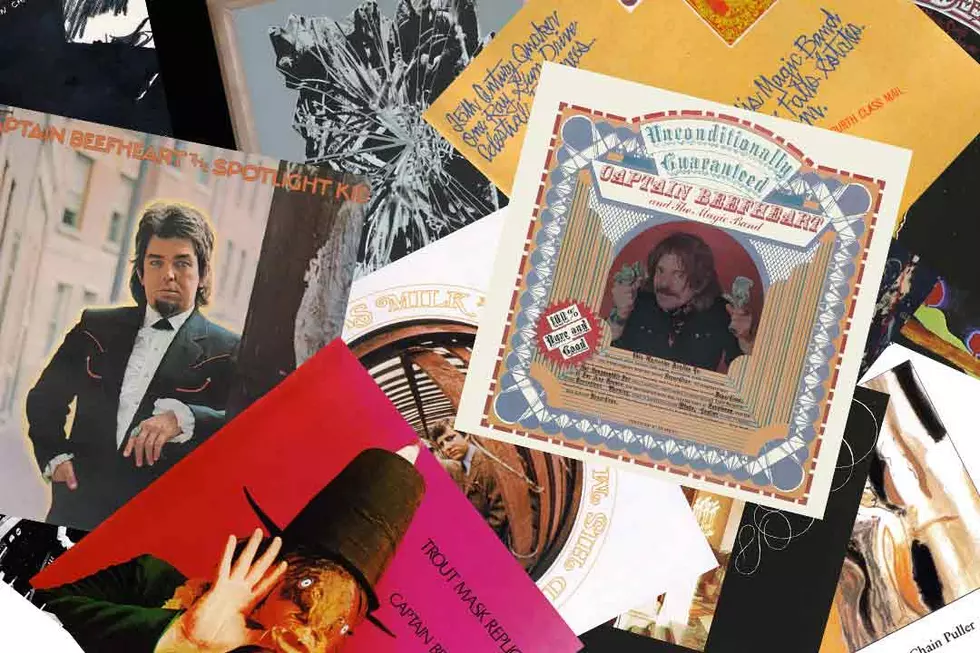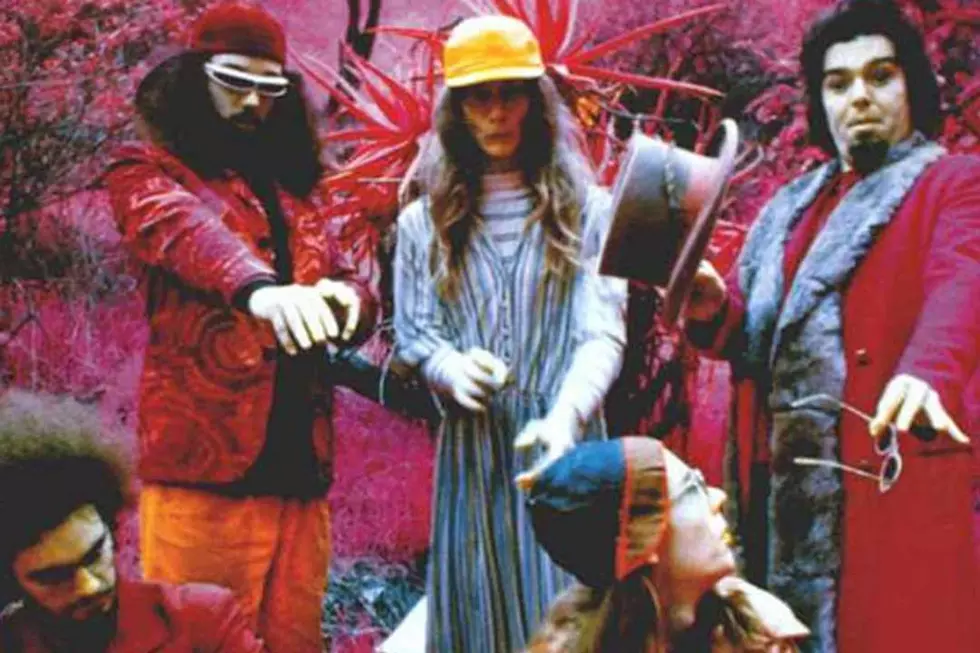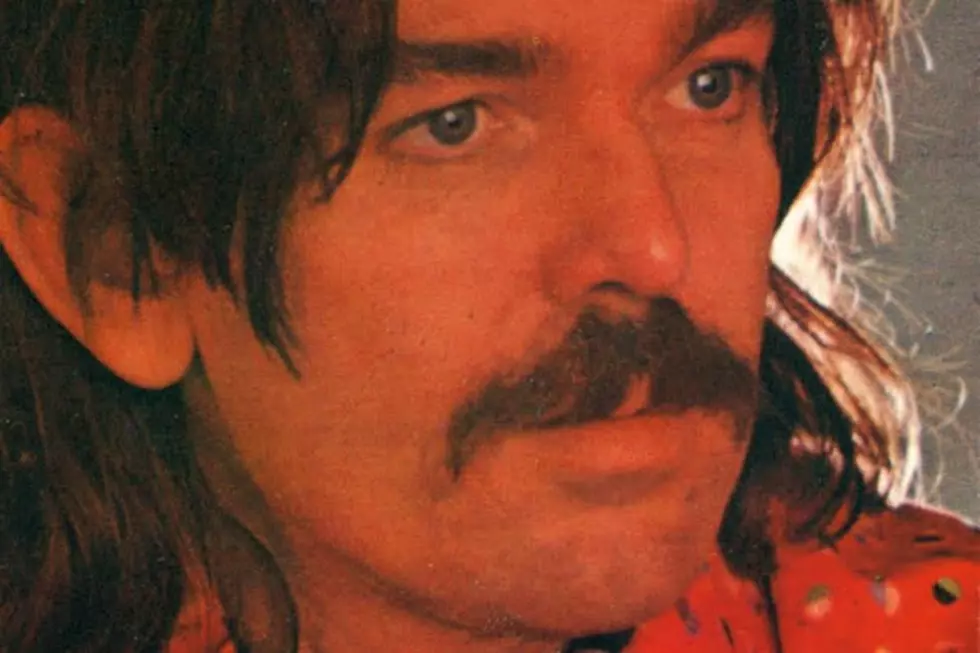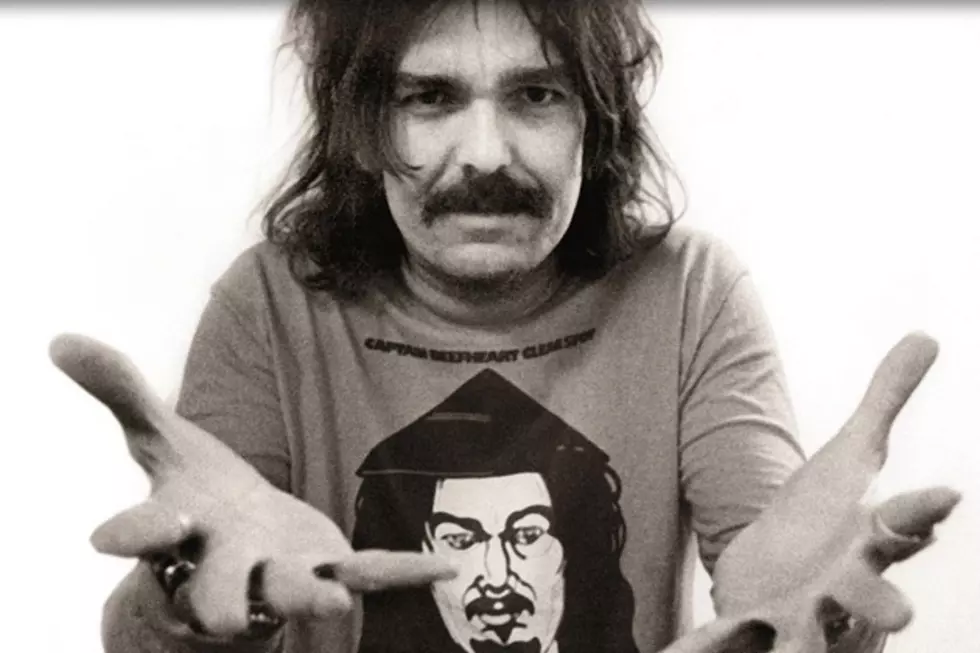
45 Years Ago: Captain Beefheart Looks Backward With Experimental Blues-Rock on ‘Mirror Man’
Captain Beefheart and the Magic Band's fifth album was a step both forward and backward. Considered chronologically, 1971's Mirror Man was a major letdown after back-to-back epics Trout Mask Replica and Lick My Decals Off, Baby – but that devolution makes sense considering its protracted history.
The material, highlighted by a trio of mammoth blues-rock showcases, was originally recorded for Buddah Records in 1967 and intended for the abandoned double LP It Comes to You in a Plain Brown Wrapper. While numerous songs were re-recorded for 1968's Strictly Personal, Buddah – which still owned the initial tapes – compiled a four-song set for release in 1971. Slotted after the band's 1967's more conventional (relatively speaking) Safe as Milk, the experimental blues grooves of Mirror Man form a logical bridge toward the perplexing masterpiece Trout Mask Replica.
It's easy to write off Mirror Man since the band ultimately discarded it. Drummer John "Drumbo" French expressed a similar view in a 2014 interview, calling the album "a rush job with poor production" and complaining that the jacket photo shows an incorrect lineup. Nonetheless, French become illuminated (in other ways) during the writing sessions, which found Beefheart's girlfriend spiking his tea with LSD.
"It was a mild dose, but enough to throw me completely off and think that everything I did was genius," he said. "Basically, when I listen back to some of that stuff, I wonder if I was dosed more than once. ... For me, LSD was completely confusing, as the hallucinations were so real that I found myself thinking, after I came down, that these were things that were always there and I just couldn’t see them when not high. The knotty pine walls in the house looked as though they were alive – as the though the sap was still flowing – there were giant tetrahedrons of Jell-O (mostly red or cherry-colored) floating around – giant 3x3x6-foot things just floating right through the walls and into the room. I had to walk funny to avoid them. There were thousands of children’s playing blocks scattered around in the garden, and fish swimming through the trees."
After that partially drug-fueled writing stint, the band – Captain Beefheart (singer, harmonica and woodwind player Don Van Vliet), French, bassist Jerry Handley, guitarists Alex St. Clair Snouffer and Jeff Cotton – hit Hollywood's TTG Studios, armed with tracks that pushed the blues-rock template of Safe as Milk into strange new territory.
"Tarotplane" is a 19-minute behemoth, defined by the two-chord chug of Cotton's soulful slide guitar and French's ever-shifting thud. Beefheart's typical surrealist lyrics are a pastiche of vintage blues songs (including Robert Johnson's "Terraplane Blues," from which the title is derived), howled through warped slabs of distortion. Both the title track and "25th Century Quaker" flow through a similar vein, with the latter defined by hippie-styled imagery ("eyes that flutter like a wide-open shutter"). Psychedelic shape-shifter "Kandy Korn," which appeared in shortened form on Strictly Personal, is basically a conventional pop song compared to its surroundings.
Captain Beefheart would refocus his vision with 1972's The Spotlight Kid, a set of more linear song structures – and a fruitful progression after the long-winded and fan-dividing Mirror Man.
Captain Beefheart Albums Ranked Worst to Best
More From Ultimate Classic Rock









